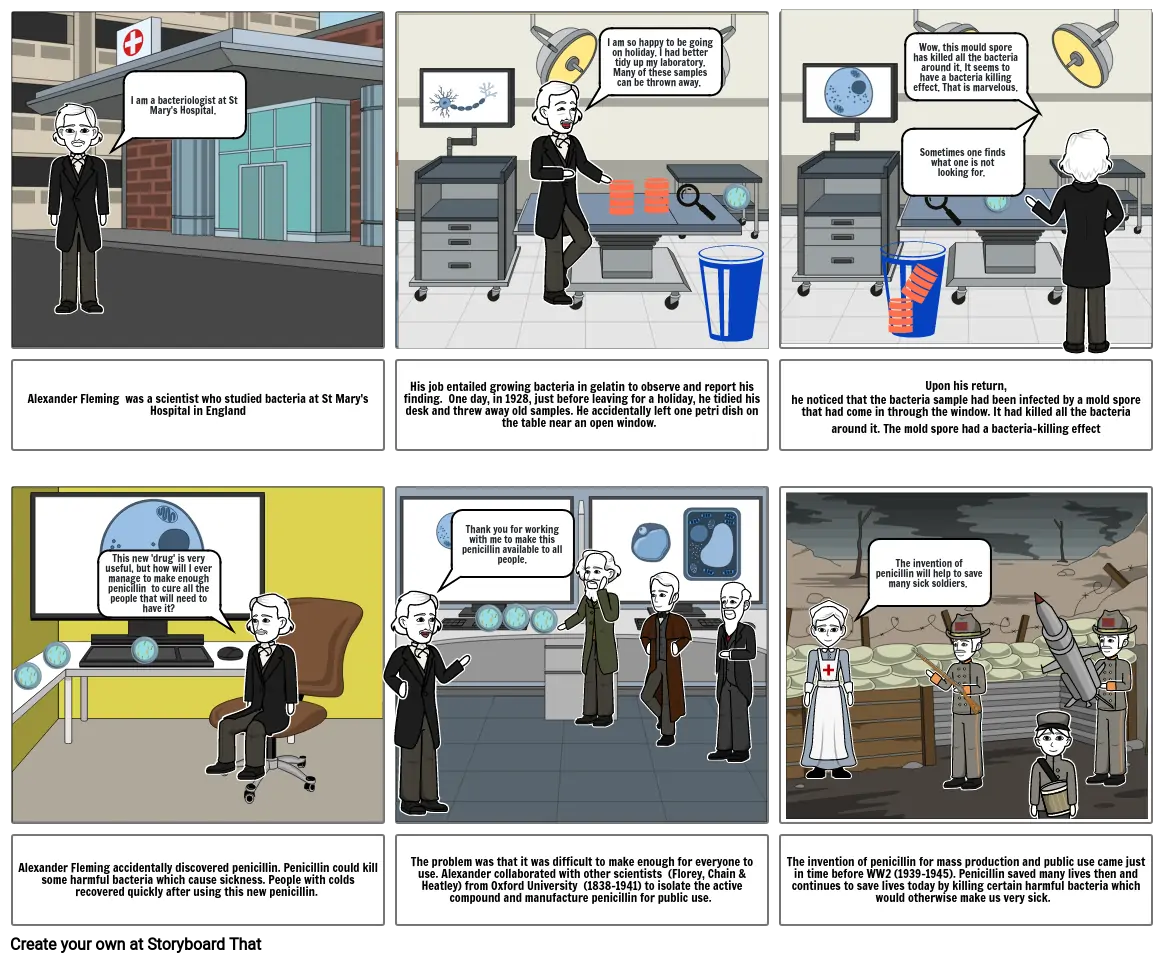Alexander Fleming

Storyboard Description
The discovery of penicillin in 1928
Storyboard Text
- I am a bacteriologist at St Mary's Hospital.
- I am so happy to be going on holiday. I had better tidy up my laboratory. Many of these samples can be thrown away.
- Sometimes one finds what one is not looking for.
- Wow, this mould spore has killed all the bacteria around it. It seems to have a bacteria killing effect. That is marvelous.
- Alexander Fleming was a scientist who studied bacteria at St Mary's Hospital in England
- This new 'drug' is very useful, but how will I ever manage to make enough penicillin to cure all the people that will need to have it?
- His job entailed growing bacteria in gelatin to observe and report his finding. One day, in 1928, just before leaving for a holiday, he tidied his desk and threw away old samples. He accidentally left one petri dish on the table near an open window.
- Thank you for working with me to make this penicillin available to all people.
- Upon his return, he noticed that the bacteria sample had been infected by a mold spore that had come in through the window. It had killed all the bacteria around it. The mold spore had a bacteria-killing effect
- The invention of penicillin will help to save many sick soldiers.
- Alexander Fleming accidentally discovered penicillin. Penicillin could kill some harmful bacteria which cause sickness. People with colds recovered quickly after using this new penicillin.
- The problem was that it was difficult to make enough for everyone to use. Alexander collaborated with other scientists (Florey, Chain & Heatley) from Oxford University (1838-1941) to isolate the active compound and manufacture penicillin for public use.
- The invention of penicillin for mass production and public use came just in time before WW2 (1939-1945). Penicillin saved many lives then and continues to save lives today by killing certain harmful bacteria which would otherwise make us very sick.
Over 30 Million Storyboards Created
No Downloads, No Credit Card, and No Login Needed to Try!
